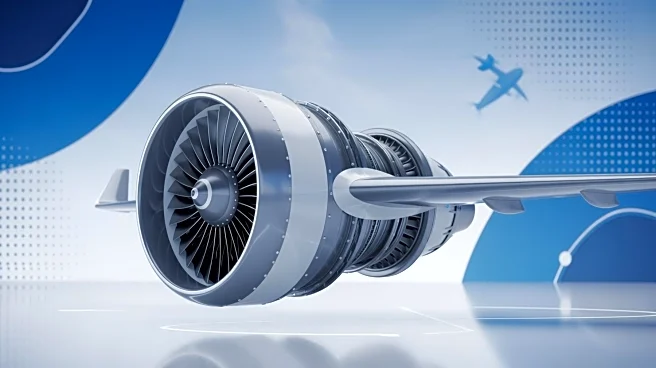What's Happening?
Aviation Week has released its 2026 Fleet & MRO Forecast, highlighting significant growth in Europe's aviation sector. The forecast predicts that Europe, excluding Russia, will receive approximately 5,200 new aircraft over the next decade. This influx
will support fleet expansion and replace around 2,000 retiring aircraft. By 2026, Europe's fleet is expected to consist of over 7,500 aircraft, with projections indicating a rise to more than 10,500 by 2035. Airbus is anticipated to dominate the fleet composition, accounting for 55% of the in-service fleet, followed by Boeing with a 38% market share. The Airbus A320 family is expected to be a major contributor, representing over 40% of the fleet by 2035. The forecast also projects a substantial demand for Maintenance, Repair, and Overhaul (MRO) services, valuing the market at over $350 billion in the next decade, with engine maintenance being the largest segment.
Why It's Important?
The forecasted growth in Europe's aviation fleet and MRO market signifies a robust demand for air travel and fleet modernization in the region. This expansion is likely to benefit major aircraft manufacturers like Airbus and Boeing, reinforcing their market dominance. The substantial investment in MRO services highlights the importance of maintaining operational efficiency and safety standards in the aviation industry. The projected increase in engine overhaul events underscores the critical role of engine maintenance in supporting fleet reliability and performance. This growth could lead to increased employment opportunities and economic activity within the aviation sector, impacting related industries such as manufacturing and logistics.
What's Next?
As Europe prepares for this fleet expansion, stakeholders in the aviation industry may focus on enhancing infrastructure and capacity to accommodate the growing number of aircraft. Airlines and MRO providers might invest in advanced technologies and training programs to meet the rising demand for maintenance services. The forecasted dominance of Airbus and Boeing could lead to strategic partnerships and collaborations to optimize production and delivery processes. Additionally, regulatory bodies may implement policies to ensure environmental sustainability and safety standards are upheld amidst the fleet growth.
Beyond the Headlines
The anticipated fleet growth and MRO market expansion in Europe could have broader implications for global aviation trends. As Europe modernizes its fleet, there may be increased pressure on other regions to follow suit, potentially driving innovation and competition in aircraft design and technology. The focus on engine maintenance highlights the industry's commitment to reducing emissions and improving fuel efficiency, aligning with global sustainability goals. This development could also influence international trade dynamics, as European airlines seek to expand their routes and services.
















